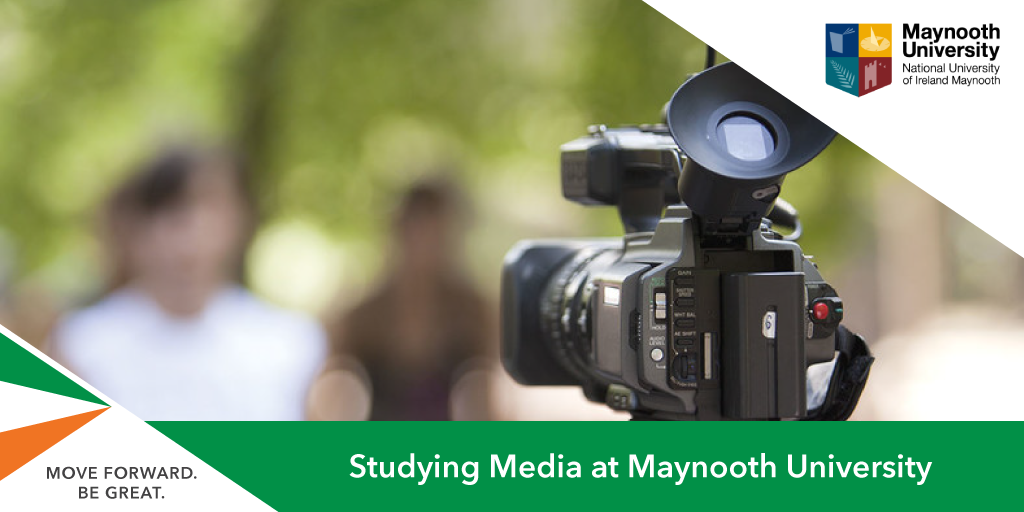Media studies is a popular academic discipline in which students explore the media's dynamic and influential role in society. It encompasses various topics, including media ethics, representation, power dynamics, and audience reception. Whether you aspire to pursue a career in journalism, filmmaking, public relations, or academia, media studies equip you with the analytical skills, theoretical frameworks, and practical knowledge necessary to navigate and contribute to the ever-evolving media world.
Schedule a free consultation with SI-Ireland to learn more about the Media Degree at Maynooth University.
Why study media at Maynooth University?
The Maynooth University Department of Media Studies offers media courses at the undergraduate and postgraduate levels, allowing students to choose the option relevant to their interests and career goals. At the undergraduate level, BA Media Studies is the major course that gives students a comprehensive understanding of how the media industry works. Hands-on instruction in creative media practices is also imparted to let students gain practical experience and learn about the impact of media on society, culture and politics.
Students who wish to receive advanced knowledge and skills relevant to the media industry can take up postgraduate studies at Maynooth University. The MA in Critical and Creative Media course is available in part-time and full-time modes, aside from an option allowing students to study for a postgraduate diploma. Another master's course with a major research aspect is M. Litt (Research), which equips students with the professional skills needed to pursue research and academic careers in the media industry.
Learn more below, and to begin your application, contact SI-Ireland today.

Why Choose Media at Maynooth University?
1. Excellent academic programmes
The university has media courses at all major levels that international students can undertake during their university years. At the undergraduate level, Maynooth offers a BA in Media Studies, while at the postgraduate level, the university has several taught and research programmes leading to master's and doctoral degrees. The major courses include an MA in Critical and Creative Media, M. Litt and PhD Media Studies. All programmes have been designed to allow students to gain in-depth knowledge of the tools and techniques they can use while pursuing their media careers.
2. Expert faculty
The media studies faculty at Maynooth University consists of experienced academics and media industry professionals who are experts in their respective fields. Many faculty members come from diverse research backgrounds, and the department pursues an extensive research profile encompassing historical and contemporary media industries. As many of the researchers' works are regularly published in academic and popular journals, students benefit from this rich research environment.
3. Infrastructure and facilities
Maynooth University provides students access to state-of-the-art facilities, including digital media labs, editing suites, recording studios, and multimedia production equipment. These resources enable students to particularly gain hands-on experience with industry-standard tools and technologies, preparing them for careers in media production, journalism, digital storytelling, and more.
4. Experiential learning opportunities
The media courses at Maynooth University also allow students experiential learning opportunities. This way, they engage in practical projects, internships, and industry placements while pursuing their bachelor's degree and postgraduate courses at the university.
Media Studies Courses at Maynooth
- Typical course structure
While studying BA Media Studies, they can access courses in TV production, media theories and interactive storytelling. Other specialist topics include mobile journalism, media and gender, TV studio production, advertising, scriptwriting, and media and politics. Students must also complete a capstone project as part of their educational experience, which can be done as a short film production or digital team project.
The MA Critical and Creative Media course includes core critical and creative media research and media theory modules that all students must undertake. Other modules can be taken as electives, including creative media, history and culture, society and justice. The MA programme culminates with a supervised project where students come to creative outcomes that are framed and contextualised theoretically.
Candidates pursuing a PhD in media studies must take all the generic skills modules for PhD students that are a part of the Faculty of Arts at Maynooth University. Additionally, they can opt for modules specific to critical and creative media, conference presentations, research seminar presentations, and language courses. During each year, the supervisor would guide students to take up appropriate modules to enhance their educational experience and skills.
- Entry requirements
Students interested in pursuing an undergraduate degree should have educational qualifications equivalent to the Irish Leaving Certificate with average to high grades in several subjects. To gain admission in the MA Critical and Creative Media course, applicants must have an equivalent of 2.1 honours degree in Media Studies or any related subject in Social Sciences, Humanities, Information Technology and Communications.
For the PhD Media Studies course, applicants generally need to have a master's degree in Media Studies. If they only have a bachelor's degree, they can enrol in the M.Litt course at the university and later transfer to PhD after completing a study period. They should also submit a research proposal to continue with their application after consulting the Centre for Admission to find the appropriate research topic and availability of a supervisor.
- Tuition fees
Maynooth University offers media courses at different levels, and international students must pay the fees according to their enrolled level. The undergraduate studies can be completed with an annual fee of €16,500. The postgraduate courses, which include the PG Diploma and MA in Critical and Creative Media, can be accessed with an annual fee of €16,000, whether you choose to take these courses part-time or full-time.
- Careers
Graduates of Maynooth University's media courses are equipped with a varied skill set and a deep understanding of the ever-changing media and communication landscape. They gain expertise in journalism, digital media production, public relations, and advertising and can pursue a wide range of careers in Ireland and around the globe.
In Ireland, graduates may find opportunities to work for leading media organizations, such as newspapers, radio stations, television networks, and digital media outlets, where they can apply their skills in storytelling, content creation, and audience engagement to produce impactful journalism, engaging multimedia content, or effective marketing campaigns. They may explore opportunities in industries such as public relations, advertising, or digital marketing by working for agencies, corporations, or nonprofit organizations.
Study at Maynooth
If you wish to pursue media studies courses at Maynooth University, consider booking a free consultation with SI-Ireland today to learn how to start your application and study in Ireland.
FAQ
What is Maynooth University best known for?
Maynooth University provides exceptional educational programmes and research opportunities in media, humanities and social sciences, communication and computation, and human health.
What professional opportunities may Indian students expect after graduating from Maynooth University's media studies programme?
Indian students graduating from Maynooth University's media studies programmes can expect many professional opportunities in journalism, digital media production, advertising, public relations, social media management, content creation, filmmaking, or multimedia storytelling.
How can I contact these Irish universities' admissions offices or academic advisors?
The university's official website provides contact information for admissions offices and academic advisors. Admissions offices usually have dedicated email addresses or phone numbers for inquiries.








